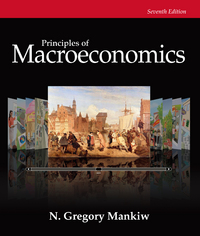Question
New Trade Theories and the China shock (a) Compare and contrast the Hecksher-Ohlin model with, at least, two of the so-called 'new trade theories', examining
New Trade Theories and the China shock (a) Compare and contrast the Hecksher-Ohlin model with, at least, two of the so-called 'new trade theories', examining first the contrasting assumptions and then, the contrasting implications. Resorting to the main concepts of the theories, explain how the changed assumptions lead to different conclusions.
(b) In a paper from 1966, Raymond Vernon wrote about his Product-Cycle Theory: 'Like the other observations which have preceded, these views about the likely patterns of exports by the less- developed countries are attempts to relax some of the constraints imposed by purer and simpler models. Here and there, the hypotheses take on plausibility because they jibe with the record of past events. But, for the most part, they are still speculative in nature, having been subjected to tests of a very low order of rigorousness. What is needed, obviously, is continued probing to determine whether the "imperfections" stressed so strongly in these pages deserve to be elevated out of the footnotes into the main text of economic theory.' Critically assess the contributions given by the 'new trade theories', examining to what extent their predictions are aligned with the contemporary realities of trade and how well they are able to explain them in comparison with the comparative advantage theories.
(c) In light of the Linder theory and the gravity model, examine the roles that the level of GDP and the level of GDP per capita may have on trade patterns, trade partners and trade volumes.
(d) Resorting to David Autor's 'Trade and Labor Markets: lessons from China's rise', from 2018, examine why the growing participation of China in international trade may have increased the relevance of the Hecksher-Ohlin model. Briefly state how the evidence presented by Autor could be derived from an application of the Hecksher-Ohlin model that had the United States and China as the two countries, and capital and labour as the two factors of production.
(e) Examine the pros and cons of the trade policies suggested by, on the one hand, the Hecksher-Ohlin model and, on the other, a new trade theory of your choice.
Step by Step Solution
There are 3 Steps involved in it
Step: 1

Get Instant Access to Expert-Tailored Solutions
See step-by-step solutions with expert insights and AI powered tools for academic success
Step: 2

Step: 3

Ace Your Homework with AI
Get the answers you need in no time with our AI-driven, step-by-step assistance
Get Started


